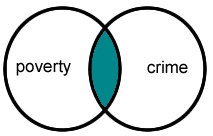
Comprehensive Sites
Burkean Rhetoric
An ongoing inventory of publications searchable collection of rhetoric article citations.
Definitions of over 60 devices.
Classical rhetoric, online journals, and many other links.
Classical through Renaissance Rhetoric
Based on the 1954 translation by Roberts.
1995 translation by Tinkler.
Links to articles, book reviews, databases, images, and a discussion forum on this topic.
A prize-winning guide to classical and renaissance rhetoric.
Includes Renaissance and classical plays and many visual images.
Political Rhetoric
Audio and video of speeches relating to terrorism since September 11, 2001.
Links to the latest presidential speeches, academic programs, books and articles, news resources, and more.
Rhetoric scholar Dr. andrew Cline's daily analysis and commentary on the 2004 presidential campaigns, with links to other academic weblogs and a multitude of media and political sites.
Includes the full text of approximately 100 speeches from 1775-2000.
A "watchdog of manipulative political rhetoric," according to its parent Salon.com. This site is no longer being updated, however the topic archive is useful.
General Rhetoric Sites
Movie speeches, sermons, interview, top 100 speeches and rhetorical figures in sound. Scroll down to view all.
Online archive maintaining texts of British political speeches from 1895 to the present.
Focuses on living women, but includes some historical speeches as well.
Multimedia archive devoted to the Supreme Court of the United States.
Part of the International Society for the History of Rhetoric, and publisher of Advances in the History of Rhetoric.
For students of rhetoric and composition theory.
Promotes the study of the theory of rhetoric and its relationships to other disciplines.
Interdisciplinary scholarly organization. Site includes information on rhetoric conferences, journals, awards, news, and resource links.
Boolean searching is built on a method of symbolic logic developed by George Boole, a 19th century English mathematician.
Boolean searches allow you to combine words and phrases using the words AND, OR, NOT (known as Boolean operators) to limit, broaden, or define your search. A good researcher should know how to do a Boolean Search.

"AND" logic
AND : Using AND narrows a search by combining terms.

"OR" logic
OR : Using OR broadens a search to include results that contain either of the words you're looking for.

"NOT" logic
NOT : Using NOT will narrow a search by exclusion. (Some search engines, like Google, recognize the minus (-) symbol, instead of the word NOT).
Quotations : Placing quotations around a specific phrase will help you narrow results in order to find information containing that exact wording.
Source: NYPL